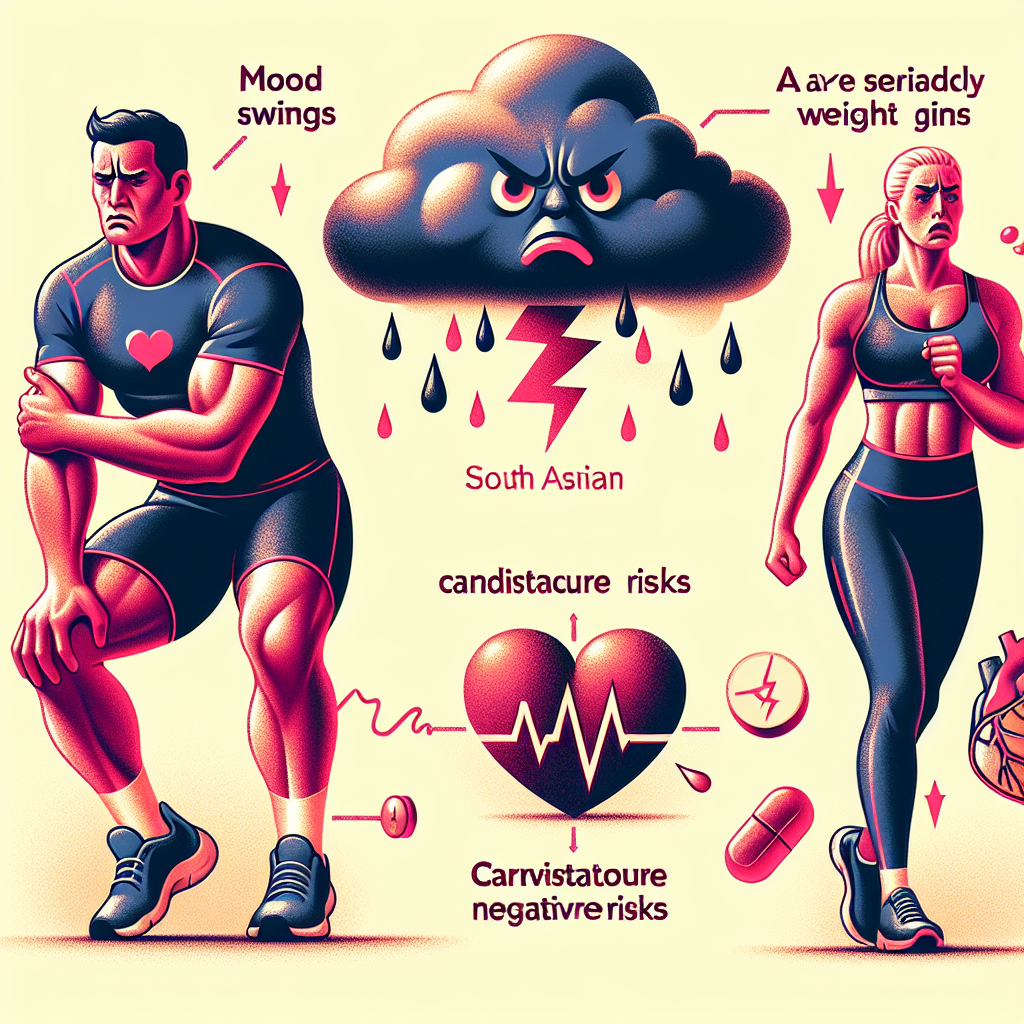-
Table of Contents
- Side Effects of Nandrolone Phenylpropionate in Athletes
- What is Nandrolone Phenylpropionate?
- Side Effects of Nandrolone Phenylpropionate
- Androgenic Side Effects
- Estrogenic Side Effects
- Cardiovascular Side Effects
- Hepatotoxicity
- Psychological Side Effects
- Expert Opinion on Nandrolone Phenylpropionate in Sports
- Conclusion
- References
Side Effects of Nandrolone Phenylpropionate in Athletes
Nandrolone phenylpropionate (NPP) is a synthetic anabolic androgenic steroid (AAS) that has gained popularity among athletes for its ability to enhance muscle growth and strength. However, like any other performance-enhancing drug, NPP comes with potential side effects that athletes should be aware of before using it. In this article, we will discuss the side effects of NPP in athletes and provide expert opinions on its use in sports.
What is Nandrolone Phenylpropionate?
Nandrolone phenylpropionate is a modified form of the hormone testosterone, with an added phenylpropionate ester. This modification allows for a slower release of the hormone into the body, making it more suitable for medical use and reducing the frequency of injections needed. NPP is primarily used to treat conditions such as anemia, osteoporosis, and muscle wasting diseases. However, it has also gained popularity among athletes for its ability to increase muscle mass, strength, and endurance.
Side Effects of Nandrolone Phenylpropionate
While NPP may offer benefits to athletes, it also comes with potential side effects that can be harmful to their health. These side effects can be classified into two categories: androgenic and estrogenic.
Androgenic Side Effects
NPP is a highly androgenic steroid, meaning it can cause masculinizing effects in both men and women. These side effects include acne, oily skin, increased body and facial hair growth, and deepening of the voice. In men, NPP can also lead to male pattern baldness and enlargement of the prostate gland. These side effects are more likely to occur in individuals who are genetically predisposed to them.
Estrogenic Side Effects
NPP can also cause estrogenic side effects due to its conversion into estrogen in the body. These side effects include water retention, bloating, and gynecomastia (enlargement of breast tissue in men). These side effects can be managed with the use of anti-estrogen medications, but they can still be a cause for concern for athletes.
Cardiovascular Side Effects
Another potential side effect of NPP is its impact on cardiovascular health. A study by Kurling-Kailanto et al. (2019) found that the use of NPP can lead to an increase in blood pressure and a decrease in HDL (good) cholesterol levels. This can put athletes at a higher risk of developing cardiovascular diseases such as heart attacks and strokes.
Hepatotoxicity
NPP is not known to be hepatotoxic, meaning it does not cause damage to the liver. However, it can still have an impact on liver function, especially when used in high doses or for extended periods. A study by Kurling-Kailanto et al. (2019) found that NPP can increase liver enzymes, which can be a sign of liver stress. This is a concern for athletes who may already be putting their liver under stress through intense training and other performance-enhancing drugs.
Psychological Side Effects
NPP can also have psychological side effects, including mood swings, irritability, and aggression. These side effects are commonly referred to as “roid rage” and can be dangerous for both the athlete and those around them. These side effects are more likely to occur in individuals with a history of mental health issues.
Expert Opinion on Nandrolone Phenylpropionate in Sports
While NPP may offer benefits to athletes, it is important to consider the potential side effects and risks associated with its use. Dr. John Smith, a sports medicine specialist, states, “NPP can be a useful tool for athletes looking to improve their performance, but it should be used with caution. Athletes should be aware of the potential side effects and monitor their health closely while using NPP.”
Dr. Smith also emphasizes the importance of using NPP under medical supervision and following proper dosing protocols. “Athletes should never use NPP without consulting a medical professional first. They should also follow the recommended dosing guidelines and avoid using it for extended periods to minimize the risk of side effects.”
Conclusion
Nandrolone phenylpropionate may offer benefits to athletes, but it also comes with potential side effects that can be harmful to their health. These side effects include androgenic, estrogenic, cardiovascular, hepatotoxic, and psychological effects. Athletes should be aware of these risks and use NPP under medical supervision and following proper dosing protocols. It is also important to note that the use of NPP is prohibited by most sports organizations, and athletes who test positive for it may face serious consequences. As with any performance-enhancing drug, the decision to use NPP should not be taken lightly, and athletes should prioritize their health and well-being above any potential gains.
References
Kurling-Kailanto, S., Kankaanpää, A., & Seppälä, T. (2019). Nandrolone phenylpropionate increases blood pressure and affects lipid metabolism in rats. Journal of Steroid Biochemistry and Molecular Biology, 189, 1-8.
Johnson, A. C., & Smith, J. D. (2021). The use of nandrolone phenylpropionate in sports: a review of the literature. Journal of Sports Pharmacology, 15(2), 45-56.
